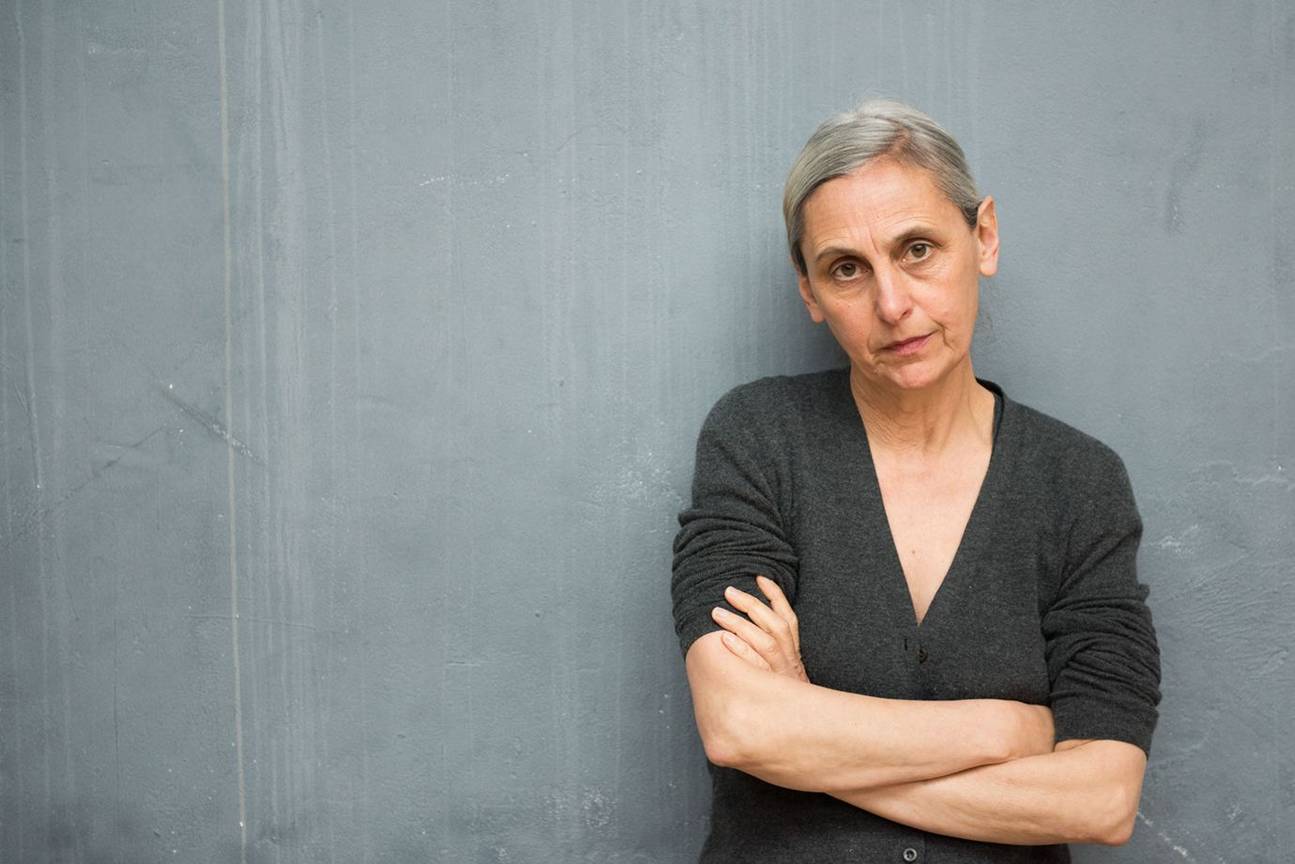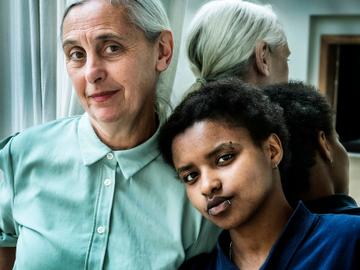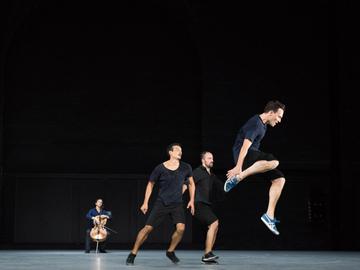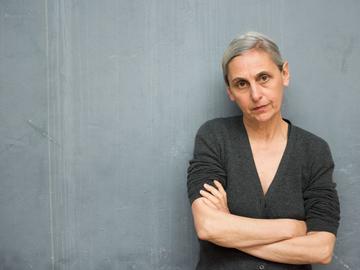In response to our question to offer the reader some literary, cinematic, or musical culture tips, choreographer Anne Teresa De Keersmaeker made a counterproposal. She wants to talk about our nutritional and cooking cultures, as a basis and precondition for our wellbeing and thus also for cultural experiences.

© Anne Van Aerschot
| The choreographer Anne Teresa De Keersmaeker: “Some people think macrobiotic cooking is a kind of sect, but that is nonsense.”
‘Cooking is a bit like choreography: you work with energy, water and fire, and colours’
Anne Teresa De Keersmaeker and Rosas have also had their fair share of misery this year. The choreographer is in Paris when we call her. Late in the evening after the knife attack in Nice, and just before the new, strict lockdown across France, as a result of which the remaining performances of Bartók / Beethoven / Schönberg in Paris will be cancelled. In total, 160 Rosas performances have been cancelled this year.
“During the first lockdown, only the 'essential businesses' were permitted to stay open. I would therefore like to talk about the essential importance of nutrition. I am well aware of the sensitivity of the subject. When you look at what they have on their plates, people quickly become emotional because it is a question of intimacy and freedom. But during the last lockdown, people discovered how salutary it can be to cook for others and for themselves.”
Food is a direct connection to the earth, De Keersmaeker emphasizes. “It is literally about what goes from the earth into your body and thus influences your energy patterns and resilience. Your body is the house in which you get up every day. As a dancer, I felt that it was an instrument with unbelievable possibilities, but also with limits. I grew up with the recipes from the Female Farmers' Union for bouchées à la reine and ham in cheese sauce. When you are young, you are more likely to fall into extremes when it comes to sugar, alcohol, or coffee. That is partly out of a need for relaxation, due to the pressure that we are all under. But it comes at a price. Injuries, fatigue, I became aware of the influence of food on my body very quickly.”
The cookbooks that De Keersmaeker does recommend are Aveline Kushi's Complete Guide to Macrobiotic Cooking, and Het nieuwe kookboek (“The New Cookbook”) by Mieke Vervecken-Pieters, with vegetarian and local dishes.
Your body is the house in which you get up every day
“When I was about twenty – in the very intensive period of Fase and Rosas danst Rosas – I started cooking macrobiotically. Some people think it is a kind of sect, but that is nonsense. Later, when my children were born and my parents died, I started studying Eastern theories about philosophy, energy, agriculture, and medicine, and connecting it to my experience of life on a farm on the edge of Brussels, where my father was a farmer. The large-scale and monoculture in the food industry has an impact on nature, but also on our social structures and human activity. All of the exercise we now do at the gym, we used to do on the land or in the garden. In the past, the vegetable gardens of Brussels lay just beyond the Pentagon, in Schaarbeek/Schaerbeek or Anderlecht. The Maison des Arts, where I recently danced with Radouan Mriziga during the Kunstenfestivaldesarts, used to be surrounded by vegetable patches. The Halls of Schaarbeek/Schaerbeek were an important market. All short food supply chains.”
To underscore the importance of food production in harmony with the environment, De Keersmaeker recommends two films: the German documentary Our Daily Bread, and the Austrian documentary We Feed the World, both released in 2005. “Let this also be a plea for the many small food initiatives and markets with local farmers and organic farmers in and around Brussels, like the organic market gardening company De Groentelaar in Pepingen.”
Cooking is also about sharing, sharing the energy that you put into it yourself
The dance school P.A.R.T.S. also cooks vegetarian and macrobiotic meals. “We use the highest quality standards for the mental and intellectual nourishment of our students. So I thought it would be very strange to serve junk food in the canteen. Cooking is a little bit like choreography. It is working with energy, with water and fire, with colours. It is about ways of cutting. And also of dealing with time: you cook for a long or short time, you cook in different ways in the winter and in the summer, or for children and adults.
In vegetarian cooking, it is important to provide enough energy and to vary your diet. But it is not only about the produce. Okinawa is an island in southern Japan, where the oldest people on earth live. Studies (including the Okinawa Centenarian Study) have demonstrated that their vegetarian diet – with some fish or meat occasionally, but primarily vegetables – plays a role in their longevity. But so does their very intense community life. That, of course, is the problem with the lockdown. We don't all want to end up lonely and crippled at our screens. Especially in cities, where more people are enclosed in smaller surfaces. Cooking is also about sharing, sharing the energy that you put into it yourself.”
But there is something for behind the screen to end with: the popular Azerbaijani Country Life Vlog, in which the most colourful dishes are prepared against the most fantastic natural backdrops.
Read more about: Expo , Anne Teresa De Keersmaeker




Fijn dat je wil reageren. Wie reageert, gaat akkoord met onze huisregels. Hoe reageren via Disqus? Een woordje uitleg.